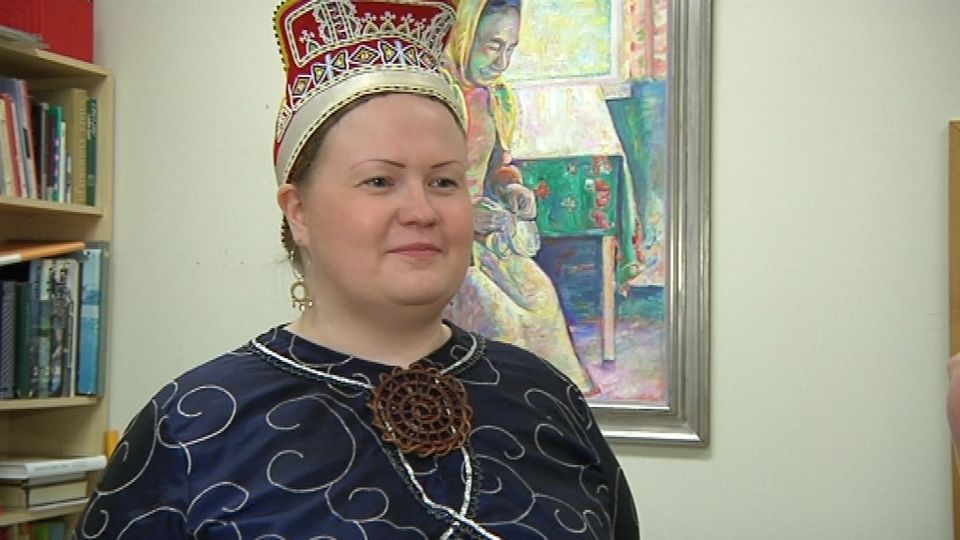Indigenous rights under fire says Finnish Saami leader

Sámi National Day is celebrated on Saturday; in an atmosphere of what some would say is waning respect for Europe’s only indigenous people.
Laws and contracts meant to reinforce the Sámi people’s rights and status are now under fire. The UN recently reprimanded Finland for its treatment of its native Lapland population.
Sámi National Day is celebrated each year on February 6, to commemorate the day the first Sámi congress was held in 1917 in Trondheim, Norway. It is a National Day is for all Sámi, regardless of where they live. In Norway’s capital of Oslo, the bells in the highest tower of the City Hall play the Sámi national anthem as multi-coloured Sámi flags are raised.
Over 10,000 Sámi live in Finland, over 60 percent outside their traditional homeland in the north. Three different Sámi languages are spoken among Finland’s indigenous population: Inari Sámi, Skolt Sámi and Northern Sámi, while nine different Sámi languages are spoken within the Nordic countries.
The Sámi language has official status in the Lapland municipalities of Enontekiö, Inari and Utsjoki, as well as the northern part of Sodankylä. All of the Sámi languages are classified as endangered.
Government goes back on its word
A government proposal to re-organise lands held by the state-owned forestry steward Metsähallitus is now in committee in the Finnish Parliament. The objective is to privatise considerable portions of Finland’s forestry operations.
But two important clauses defending Sámi culture have been removed without notifying the Sámi community.
Tiina Sanila-Aikio (known as Paavvâl Taannâl Tiina in Skolt Sámi) is the President of the Sámi Parliament of Finland, the representative body for people of Sámi heritage in Finland, established in 1973.
“For some reason, the Sámi people aren’t thought of as a sovereign nation that can decide for itself what is in its best interests,” Sanila-Aikio said on the eve of the celebration.
She suspects that it is because the drive to strengthen Sámi rights in Finland has been an uphill battle.
“This last year has been tough for the Sámi because the state has reversed its course on a number of agreed issues,” she said.
Clauses would have offered protection
She refers both to the aforementioned Forestry Act and the previous government’s failure to ratify the UN Convention on the Rights of Indigenous Peoples. This came despite lip service towards support for the Convention in the government programme and what appeared to be a finalised bill in Parliament.
One of the clauses dropped from the legislation would have required the government agency Metsähallitus to clarify to the Sámi Parliament and the Skolt Sámi Village Council what impact the land management shakeup would have on indigenous people’s lives. This would have perhaps given the Sámi an opportunity to negotiate some of the terms of the re-organisation.
The second clause would have prohibited Metsähallitus from undermining opportunities to practice and foster Sámi culture. Both of the clauses would have provided a needed protective buffer to the Sámi living in sparsely-populated Lapland, where 90 percent of the land is owned by the state via Metsähallitus.
UN criticism
In late December, the UN’s Special Rapporteur for Indigenous People Victoria Tauli-Corpuz expressed deep concern at the lack of consultation and the reduced protection offered to the Sámi in the draft law to regulate the management of state-owned lands.
“The new draft bill presented to the Finnish Parliament earlier this month no longer contains valuable safeguards for the Sámi people’s rights to traditional livelihoods, lands, territories and resources, which had been included in the previous draft approved in 2014,” Tauli-Corpuz warned.
She said that according to the new bill, most of the Sámi homeland will be transferred to a new state-owned company that has yet to be established. This new company will have the responsibility for all logging carried out on state-owned lands in Finland.
“I hope that the draft law will consider that the Sámi Parliament and the Skolt Sámi Village Council have had limited opportunities to take part in this process, which is contrary to Article 19 of the Declaration of the Rights of Indigenous Peoples which Finland has endorsed,” said the Filipino activist.
News of the UN’s reprimand was not reported widely in Finland, where news affecting the Sámi rarely crosses the mainstream news threshold.
A message to the South
On Sámi National Day, Sanila-Aikio wants to send a message to decision-makers in southern Finland.
“The Sámi are recognised as the only indigenous people of Finland in the Finnish Constitution. We know what is in our own best interests… We have much to contribute to Finnish society, if only we were offered the chance.”
Related stories from around the North:
Canada: Arctic missing from Paris climate agreement, Eye on the Arctic
Finland: Sámi politician calls Finland “racist country”, Yle News
Greenland: What the EU seal ban has meant for Inuit communities in the Arctic, Eye on the Arctic
Norway: Stop romanticizing Arctic development say indigenous leaders, Eye on the Arctic
Sweden: Sami demand rights as indigenous people, Radio Sweden
Russia: Russia brands Arctic indigenous organization as “foreign agent,” Barents Observer
United States: Arctic conference spotlights indigenous issues, Alaska Dispatch News



